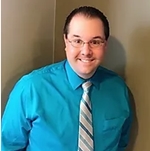
Bryan Horn talks standards and why he believes it is essential to have a dedicated director with a customer-first mindset leading your customer service operation.
I must admit that I am a fan of world-famous British chef Gordon Ramsey. Sure, I know that a lot of what happens on his shows is scripted to make good television. Yes, he can be overbearing, condescending, and boorish. But despite all of this, he is known for one thing: standards. No matter what part of the world his restaurants are located in, his high standards will be met. Fail to follow them, and you are out of a job.
For Ramsey, standards are everything. Consistency is key for him. He expects and demands perfection across his brand, and he goes to great lengths to make sure his name is being represented accurately. As part of his television empire, Ramsey hosted a show called Hotel Hell and followed a similar premise to his Kitchen Nightmares program. Instead of struggling kitchens, he visited and revamped struggling hotels.
One question Ramsey would ask delusional hotel owners was, “When was the last time you stayed here?” Not to his surprise, the owners stated they rarely ever stayed at their own properties. This is when Gordon opened up the swear word flood gates and would let loose a barrage of insults. Through the drama of it all, Ramsey makes a valid point: every business owner needs to place themselves in the shoes of the customers they serve. Ramsey often screams, “STANDARDS! Where are your standards?” Businesses owners need to step back and ask themselves if their current standards would cause them to hand over their hard-earned money if the roles were reversed.
Every ship has a captain, who then delegates various responsibilities to his/her crew. On luxury cruise liners, a single officer (often the Guest Services Officer) is in charge of the experience passengers are having. He/she makes sure each guest is getting their money’s worth. He/she oversees a vast team of crewmembers and staff, enforcing the standards set by the captain. The captain steers the ship to a port; the Guest Services Officer makes sure everyone has a good time getting there.
Having a director of customer experience is crucial for the operation of any organization. How your guests/customers perceive your brand is key to their return. They are tasked with ensuring your customers get the best “bang for their buck” and leave your organization with a longing to return and spend more money. They set the atmosphere and create a culture that will enforce the vision set forth. If you truly wish to take care of your customers and have a customer-centric business, then a director of customer experience is key.
But it can’t be just anyone, and it can’t be a title for someone to fill. This person needs to have a customer-first mindset. They should have a genuine obsession for the experience your guests have when interacting with your brand. This individual must be passionate about the service of customers and the employees who make it all happen. Great service begins with great employees. Treat them well, and they will treat your customers well. It is as simple as that.
Here are three areas your director of customer experience should focus on. While some may disagree, I believe these elements are key areas of enforcement from a customer experience director.

Consistency
Nothing frustrates customers more than a lack of consistency. People like to know what to expect. They don’t like surprises. If you’re running a business with mediocre service, that is your choice. If you’re running a business with great service, that is also your choice. But don’t go back and forth; you are sending mixed messages to people. Companies must deliver positive experiences every time. It must be a consistent expectation for your customers. Maybe I don’t understand the nature of franchise businesses, but this seems to be a real issue.
There is a very large automotive group in Utah run by a very wealthy and famous family. Despite the prestige of the family, this chain of auto dealerships has consistently low to average reviews on social media from customers. The number one complaint is a lack of consistent practices and services across the organization.
This company believes what works in one area of the country does not work in another. I support this belief. However, instead of instituting a base set of policies that are consistent, the organization has given free rein to general managers at each individual location.
What you experience at one store might differ completely from the one next door. One general manager might promote a culture of aggressive and deceptive sales practices, while another may promote a relaxed car-buying experience. They have turned buying a car into an experience akin to going to the casino. They make people play customer service roulette: am I going to get bad service or great service? It’s the luck of the draw, a roll of the dice. This isn’t any way to treat customers.
There are certain organizations I know will provide terrible experiences every time. This is why I make every effort to avoid them. On the other hand, there are businesses I know will deliver amazing experiences every time. I appreciate both businesses for providing consistency, especially the bad ones. It helps me to decide where I want to spend my money. In both cases, I know what to expect. It’s the not knowing which drives me crazy. Regardless if you have a small store-front, several locations, or span across a vast enterprise, your service standards must be consistent with every employee.
Exceed Expectations
In a 2018 survey, Salesforce found the number one demand from customers was a memorable experience. What happens when they don’t get this from your brand? 76% of respondents stated it’s easier than ever for them to take their business elsewhere—switching from brand to brand to find an experience that matches their expectations.”
The bar for customer service has been set so low, consumers breathe a sigh of relief when they can be done dealing with a company. Doing business has become a chore for them. No one looks forward to it. You don’t want to do it. But you have to do it.
As you read this, what comes to mind? The fast-food restaurant who gets your order wrong and rolls their eyes when you bring it to their attention? The car dealership who doesn’t want to help you with the answers to your questions, but only wants to sell you an extended warranty? What about the monster mega-store offering every product under the sun except a smile and friendly service? The cable/internet service is always mysteriously raising your price, but lowering your channel selection? Everyone has bad experiences with customer service. But what about those average experiences everyday? The ones which were just ok? Do you feel loyal to them, or do you simply tolerate them until you find something better?
A good friend of mine had an unbelievable experience at a large big-box home improvement store. He was doing some renovations on his home and needed a certain part. After perusing the aisles and having no luck, he finally asked an associate for help. This is when he found Dan.
Dan listened as my friend described what he needed. Dan sadly stated his store, nor any store in the area, carried the item.
“But I can make it for you!” He said.
My friend’s eyes raised in shock. He didn’t think he was serious and brushed him off. Dan was persistent, however. Dan had all the tools at his house and was committed to making sure my friend could finish his project.
Two hours later, my friend met Dan at his home. As promised, he finished the part in a few minutes. As my friend talked with Dan, he learned much more about this man. Dan was a custom home builder who had fallen on hard times. He was lonely and didn’t have a solid family to rely on. He was a master home builder and craftsman. And he loved helping people.
Upon completion of the project, my friend asked how much he owed for the project. Sticking his hand out, Dan simply said, “Just a handshake will do.” For people like Dan, raising the bar is second nature. He cares about people. Doing right for others and seeing their satisfaction is more valuable than profit.
These are the kinds of employees you need, not rank and file chair warmers. Seek out these individuals. It is people like Dan who take customer experience to the next level.

Think Like Your Customer and Set Standards Accordingly
If you walked into a hotel room and found the bathroom dirty, the sheets wrinkled, foul smells and dirty carpets, would you feel comfortable resting your head down on the pillows? If you stepped into a place of business and were not warmly greeted and made to feel welcome, would you spend your money there? If you walked into a restaurant and found bits and pieces of food everywhere, an unclean table and dust lining the ceiling fans, would you want to consume the food offered?
What are your standards? How do you enforce them? What happens when those standards are not met? These are the important questions you need to ask yourself when you deal with customers. If you want your customers to return to your place of business, then you must examine your standards and reflect on how you would view them through the eyes of your customers. If you would expect good service from the places you do business with, what makes you think your own customers don’t want the same thing?
A good customer experience director will put themselves in the shoes of your customers. Your customers are looking for a reason to be loyal to your brand; will you give them one? Anticipating customer needs, consistency, and exceeding expectations is not rocket science. Simply put, see things through the eyes of your customers.
If you were to do business with your own company, would the experience you receive make you a raving fan or a bitter adversary? If you are not sure what your customers want, ask them! Customers are more than willing to tell you what they want from a business. They will gladly share their ideas and opinions. The question is will you actually implement them?
About the Author
 Bryan Horn is a customer experience trainer and corporate culture development expert. He has 16 years of experience as a financial services manager. He has been homeless, jobless, and everywhere in between. He brings real-world applications and stories that relate to every culture and industry.
Bryan Horn is a customer experience trainer and corporate culture development expert. He has 16 years of experience as a financial services manager. He has been homeless, jobless, and everywhere in between. He brings real-world applications and stories that relate to every culture and industry.
He is the author of the internationally successful book The Customer Service Revolution: 8 Principles That Will Change the Way Companies Think About the Customer Experience and the Employees Who Work for Them and is currently publishing his second book.
Bryan is the founder of CS Solutions, a customer experience training consulting firm. He resides in Salt Lake City, UT.
For more information, please visit www.thecsrevolution.com.




